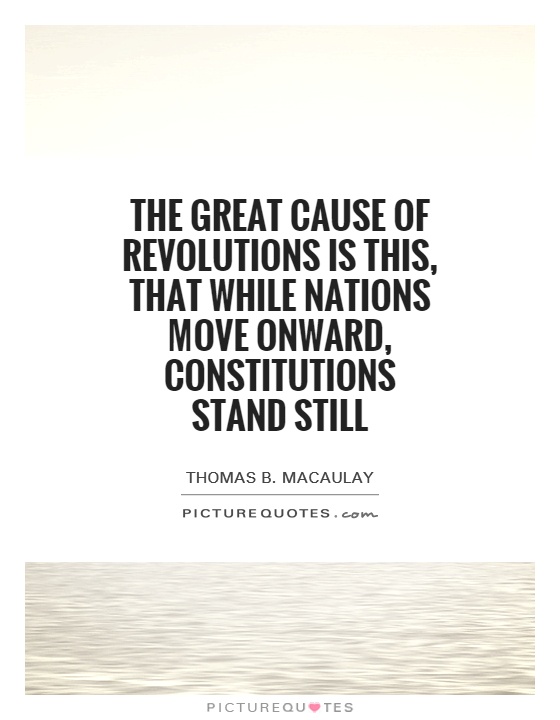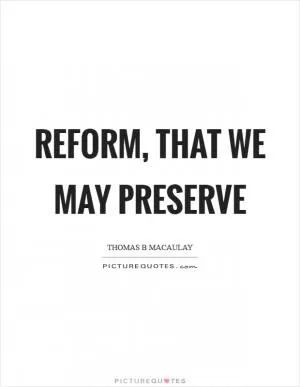The great cause of revolutions is this, that while nations move onward, constitutions stand still

The great cause of revolutions is this, that while nations move onward, constitutions stand still
Thomas B. Macaulay, a prominent British historian and politician of the 19th century, once famously said, “The great cause of revolutions is this, that while nations move onward, constitutions stand still.” This statement encapsulates the essence of the tumultuous period of political upheaval and social change that characterized the era in which Macaulay lived.During Macaulay’s time, the world was in a state of flux. The Industrial Revolution was transforming societies, economies, and cultures at an unprecedented pace. The old order was being challenged by new ideas and technologies, leading to widespread discontent and unrest among the masses. In this volatile environment, the need for political reform and constitutional change became increasingly urgent.
Macaulay understood that the key to preventing revolutions lay in adapting constitutions to the changing needs and aspirations of the people. He believed that stagnant and outdated political systems were a recipe for disaster, as they failed to keep pace with the evolving demands of society. In his view, revolutions were not inevitable but rather the result of a failure to address the legitimate grievances of the people through peaceful and democratic means.
Macaulay’s own political career was marked by his commitment to reform and progress. As a member of the British Parliament, he championed causes such as the abolition of slavery, the extension of voting rights, and the improvement of education. He believed that a dynamic and responsive government was essential for maintaining social stability and preventing the outbreak of violent revolutions.












 Friendship Quotes
Friendship Quotes Love Quotes
Love Quotes Life Quotes
Life Quotes Funny Quotes
Funny Quotes Motivational Quotes
Motivational Quotes Inspirational Quotes
Inspirational Quotes